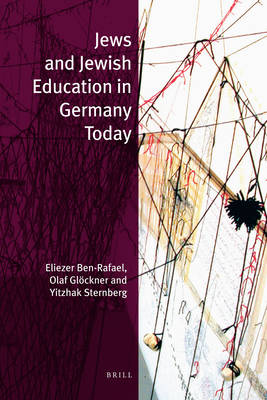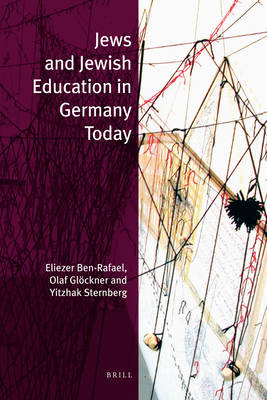
- Afhalen na 1 uur in een winkel met voorraad
- Gratis thuislevering in België vanaf € 30
- Ruim aanbod met 7 miljoen producten
- Afhalen na 1 uur in een winkel met voorraad
- Gratis thuislevering in België vanaf € 30
- Ruim aanbod met 7 miljoen producten
Zoeken
€ 80,95
+ 161 punten
Uitvoering
Omschrijving
Since their recent dispersion from the former Soviet Union, Russian-speaking Jews (RSJ) have become the vast majority of Germany's longstanding Jewry. An entity marked by permeable boundaries, they show a solidarity and commitment to world Jewry, including Israel, but feeble identification with their hosts. The identification with the larger Jewish community leads to a wide consensus concerning the importance of offering Jewish education to the young. The study presented here explores the influence of the RSJ community, their relationship with German speaking Jews, and the ways in which the RSJ identification with world Jewry influences Jewish education opportunities for the young. Utilizing surveys of the largest Jewish communities in Germany, interviews of leading public figures, and a comprehensive overview of the Jewish educational framework available in Germany, this book seeks to present a description and analysis of the Jewish population in Germany including its attitudes, activities, expectations, and identify formulations.
Specificaties
Betrokkenen
- Auteur(s):
- Uitgeverij:
Inhoud
- Aantal bladzijden:
- 344
- Taal:
- Engels
- Reeks:
- Reeksnummer:
- nr. 16
Eigenschappen
- Productcode (EAN):
- 9789004253292
- Verschijningsdatum:
- 4/04/2013
- Uitvoering:
- Paperback
- Formaat:
- Trade paperback (VS)
- Afmetingen:
- 155 mm x 235 mm
- Gewicht:
- 517 g

Alleen bij Standaard Boekhandel
+ 161 punten op je klantenkaart van Standaard Boekhandel
Beoordelingen
We publiceren alleen reviews die voldoen aan de voorwaarden voor reviews. Bekijk onze voorwaarden voor reviews.











